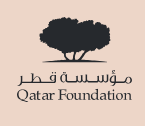
The hospital asked Dr. Mohammed Ghaly, a teacher of Islam and biomedical ethics, and a representative from Qatar’s religious affairs ministry to look into the case. The two discussed the issue with the family and provided them with options based on the teachings of Islam in order for them to make a difficult—yet informed—decision on their own.
“The Islamic tradition is rich and has great diversity. We don’t have a binding religious authority that speaks in the name of Islam in the same way that, for instance, the Pope speaks for Catholicism. So, in the case of bioethics, religious scholars and biomedical scientists discuss these issues together and try to come to a conclusion,” said Dr. Ghaly, Academic Director at the Research Center for Islamic Legislation and Ethics (CILE).
“Most of the time, we have a diverse conclusion, and we (at CILE) try to show this diversity to the end-users.”
Islamic ethics and modern science
Contemporary Muslim scholars have previously studied emerging scientific technologies in isolation, declaring them permissible or not based on their own understanding of these technologies. In some cases, this created debatable rulings, as many decisions were made without proper scientific or biological understanding of these technologies.
CILE, part of Qatar Foundation member Hamad Bin Khalifa University’s (HBKU) College of Islamic Studies, was established to study Islamic perspectives on ethical issues and questions raised by modern sciences and disciplines of knowledge where interdisciplinarity plays a key role. CILE tries to benefit from the insights of both ‘scholars of texts’ (religious scholars and academics) and ‘scholars of context’ (scientists, practitioners, and experts), in order to have as comprehensive a picture as possible of the issues at hand.
Dr. Ghaly’s work focuses on bioethics, looking into what Islam has to say about the ethics and principles of using biomedical inventions that are not explicitly mentioned in Islamic texts. He serves as the editor-in-chief of the Journal of Islamic Ethics, published by Brill in collaboration with HBKU, has authored various books and publications on the topic, and is regularly involved with international lectures and seminars in the field.
CILE’s research in bioethics touches on topics ranging from medical breakthroughs related to the beginning of human life, such as pre-marital genetic testing and fertilization of eggs outside the human body (in vitro fertilization), to issues related to the end of life, such as brain death or euthanasia.
“If you ask an average person what Islam says about these things, they would surely wait for a while and say, ‘What does Islam say about this?’,” said Dr. Ghaly. “This is the gap that we try to fill in.”
CILE actively conducts academic research to guide the answers to these questions, regularly holding seminars and intellectual exchanges between religious scholars and field experts and studying contemporary issues from the perspective of existing Islamic sources of guidance. The discourse produced is disseminated through various lectures and conferences throughout the year, published in the Journal of Islamic Ethics and other periodicals, or made available to those who contribute to Islamic jurisprudence (fiqh).
Answering such questions at CILE has become all the more important against the backdrop of Qatar’s fast-developing healthcare system, now ranked fifth-best globally and first in the Middle East by the Legatum Prosperity Index.
“We have a country that wants to be at the forefront in everything, including healthcare,” said Dr. Ghaly. “Sidra Medicine, for instance, has the most advanced machines worldwide, so people there want to provide the best healthcare services, but they are also very much aware that offering such advanced technologies can also have its own moral challenges and questions.”
“So, people need to understand what’s acceptable and what is not, and how a rich ethical tradition like Islam can have a positive contribution in this regard.”
The college has also recently launched a Master’s degree program in Applied Islamic Ethics, in order to address an urgent need in contemporary society of this nascent field. The program aims to explore tools for ethical reasoning rooted in the Islamic tradition so that leading-edge ethical dilemmas can be addressed.
Engaging the public
The possible clash between faith and modern biomedical technologies is an ongoing issue in all religions, and within many religious bodies, around the world. From abortion in Christianity to animal-derived drugs in Hinduism and the views that Jehovah’s Witnesses hold on blood transfusion, there are numerous examples of healthcare services being challenged by religious followers.
While CILE’s work does not include issuing normative judgments on what is or is not allowed in Islam—it lays the ground for fatwa-granting institutes to do this—the center strongly believes that many controversies can be avoided by openly engaging with the public.
“The topics we discuss are very ‘heavy’ topics, and the mainstream position is that these should be discussed behind closed doors. We don’t think so. Scholarship and knowledge are for everybody, and shouldn’t be elitist,” said Dr. Ghaly.
“Without engaging the public, you can have very serious problems, because you need the trust of the people to go further, and you cannot get the trust of the people if you keep them outside the discussion.”
The center regularly holds public lectures, both locally and internationally, to communicate with its audiences, and also conducts training with academic, civic, and healthcare professionals to share its research and guidelines.